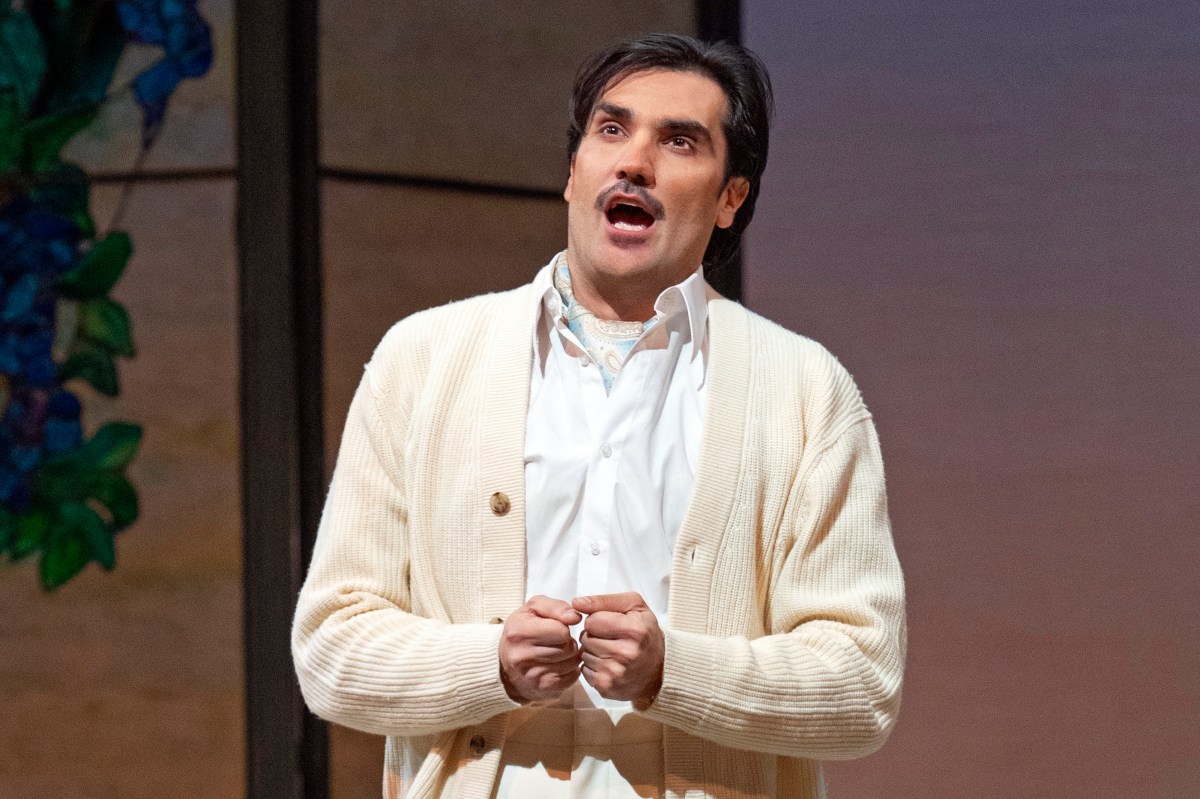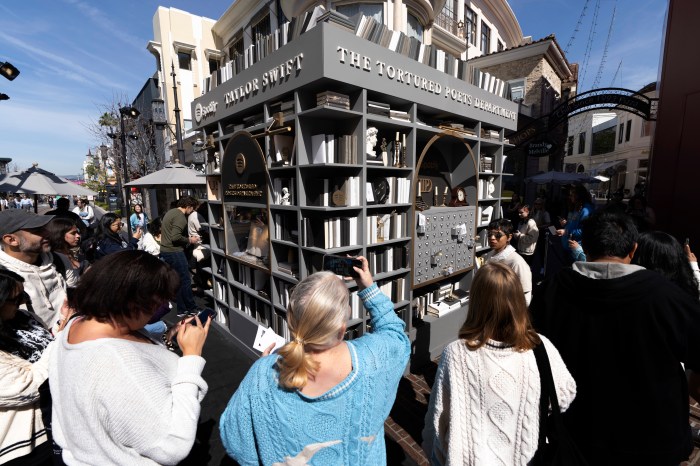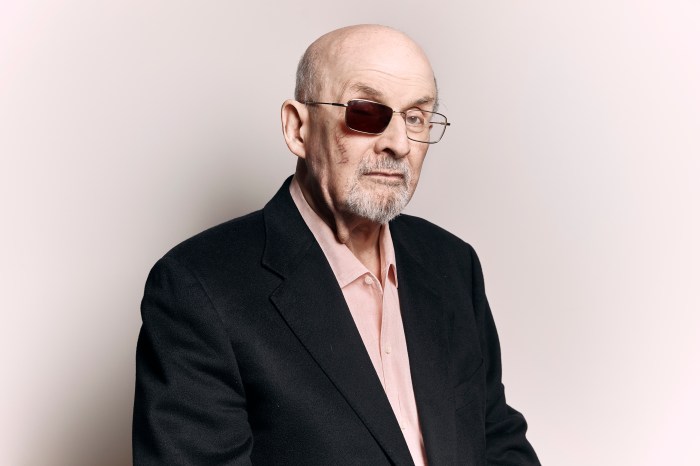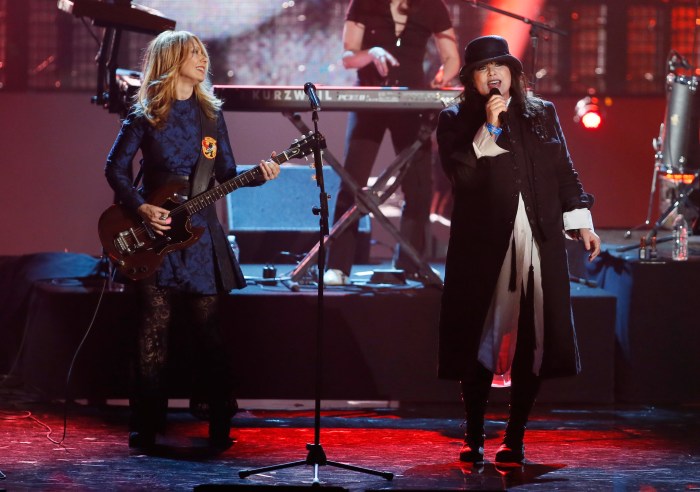NEW YORK (AP) — Jonathan Tetelman transformed from a nightclub DJ to an international opera star, a music detour that was quite, well, operatic.
He stopped singing in 2011 and mixed music for New York’s clubbers at Webster Hall, Pacha, Greenhouse and W.i.P. These days, the 35-year-old’s gigs are at posher places such as London’s Royal Opera House and the Salzburg Festival.
His career revived by a transition to tenor from baritone, Tetelman will be featured as Ruggero in a Metropolitan Opera performance of Puccini’s “La Rondine (The Swallow)” with soprano Angel Blue, televised live to theaters worldwide Saturday. Starting April 26, he sings Pinkerton in “Madama Butterfly” opposite soprano Asmik Grigorian in her Met debut.
“I kept saying to people, ‘You know, I’m a DJ, but I’m actually an opera singer.’ And the more I said it, the more I was like: ’Am I really an opera singer?’” Tetelman recalled of his singing sabbatical.
So he gave himself six months.
“I just sold everything. I sold all my equipment. All my speakers, all my turntables — everything — and just focused,” he said.
Born in Chile, Tetelman was adopted at about 7 months and grew up in Hopewell Township, New Jersey. He got a degree from the Manhattan School of Music in 2011 and considered himself a baritone.
Tetelman moved on to the Mannes School of Music for a graduate program where he was told his upper register was his future but struggled with even audition standards. Overcome with frustration, he headed to the downtown nightlife scene in 2013.
“It just wasn’t — it wasn’t clicking. I threw it all away,” he said.
After concluding that club life wasn’t a future, Tetelman began listening to recordings of Luciano Pavarotti, Enrico Caruso, Franco Corelli and Jonas Kaufmann to understand how they used their voices. Working with Mark Schnaible and Patricia McCaffrey, a husband-and-wife vocal coach team, he began building his tenor technique in 2015.
“This young man is wildly talented,” Schnaible said.
By his mid-20s, Tetelman thought himself too old for professional training programs, so he found an agent. He sang Eisenstein in Johann Strauss II’s “Die Fledermaus (The Bat)” at the Martina Arroyo Foundation’s young artists program in 2016. He then paid a few hundred dollars to attend an open call casting audition. That led to the role of Rodolfo in Puccini’s “La Bohème” at the Fujian Grand Theatre in China in 2017.
He was hired for “Bohème” in November 2018 at the English National Opera, where all performances are in English.
Tetelman prepared by singing in “La Boheme Warhola” — an adaptation of the classic that shifts to Andy Warhol’s The Factory studio — with Pittsburgh Festival Opera at the Falk Auditorium, a 360-seat school theater. Around the same time, agent Alan Green arranged for Tetelman to take over Rodolfo for a concert performance at the Boston Symphony Orchestra’s Tanglewood Festival after Piotr Beczała withdrew to replace Roberto Alagna at the Bayreuth Festival’s “Lohengrin.”
That raised Tetelman’s profile before he headed to the London Coliseum for the revival of Jonathan Miller’s 2009 staging, a key accelerant of his career.
“The production and the theater are wonderful. ‘La Bohème’ in English is disgusting,” Tetelman recalled vividly.
A dashing 6-foot-4 with dark hair and a wide smile, he became an in-demand singer for Puccini.
“He has a very solid top. When he sings soft, which I always encourage, especially in the very intimate moments, there’s a tenderness,” conductor Speranza Scappucci said.
On the night of Tetelman’s Met debut on March 26, an audience member tossed a bouquet he caught on the fly.
“He’s certainly a very, very charismatic presence and the audiences are responding,” Met general manager Peter Gelb said.
Tetelman made his Salzburg Festival debut last summer in Krzysztof Warlikowski’s “Macbeth.” The staging opened in an obstetrician’s office with children wearing black and yellow patches warning of radiation.
“You had to be on like mushrooms or something to really understand it,” Tetelman said, quickly adding, “It was one of the most amazing experiences I’ve had. … I think working with him was actually a really inspiring moment for me.”
Future roles include Turiddu in Mascagni’s “Cavalleria Rusticana” and a title role in Saint-Saëns’ “Samson et Dalila” along with the heavier Puccini parts of Dick Johnson in “La Fanciulla del West (Girl of the Golden West)” and des Grieux in “Manon Lescaut.” He’d like to take on Strauss’ Apollo in “Daphne” and Bacchus in “Ariadne auf Naxos” one day.
“I’m trying to book actually less and less Puccini just because I’ve booked so much,” Tetelman said.



















